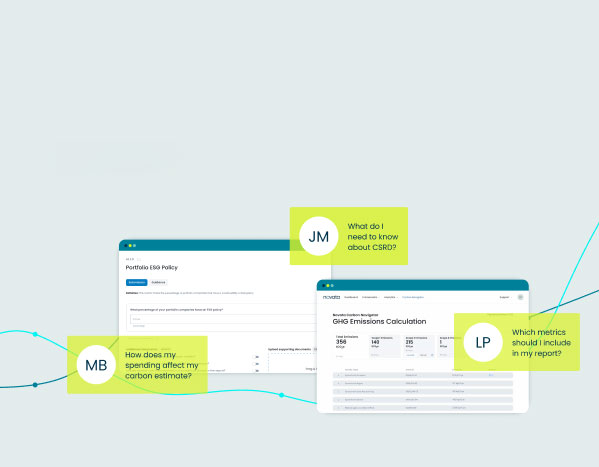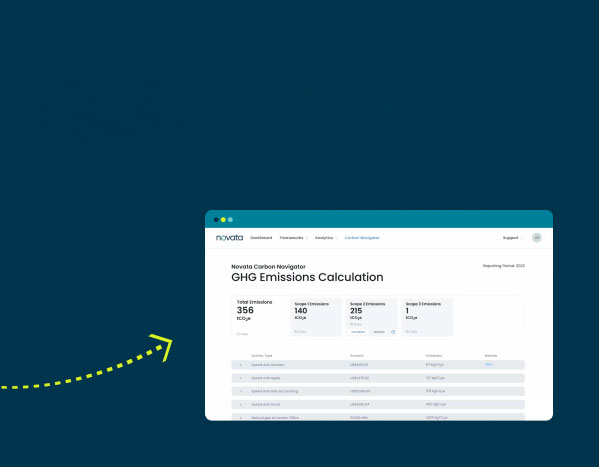Novata recently hosted a webinar on the topic “How to Build an ESG Strategy for Private Equity.” This post includes insights from the webinar. Watch the replay here.
With ESG considerations gaining traction in private markets, a documented plan around ESG can help general partners (GPs) demonstrate their sustainability commitments to investors and regulators.
An ESG or Responsible Investment policy is foundational to the ESG journey. It outlines the firm’s values on ESG, demonstrates the approach to responsible investing, and makes it easy to communicate those values to stakeholders. Additionally, a clear, documented policy can serve as a starting point for an ESG strategy. For firms integrating ESG into investment decisions, an ESG policy will help ensure the approach aligns with the firm’s priorities, core values, and fiduciary duties.
Why Is an ESG Policy Important?
According to PwC, 72% of private equity investors and managers always screen potential portfolio companies for ESG risks and opportunities before making an investment.
GPs can use ESG considerations to support the due diligence process by aligning with firm values and uncovering potential ESG risks that traditional due diligence may overlook. The same PwC study found that 49% of firms integrate highly material ESG factors into commercial due diligence. Example ESG risks include accounting for climate change concerns or preparing for changing regulatory expectations and customer preferences. Firms can also choose to exclude companies in certain industries or with characteristics that do not align with their values and goals.
Post-acquisition, an ESG policy helps GPs shape ESG engagement with portfolio companies throughout the ownership phase. Each portfolio company will have different opportunities as it relates to ESG. A documented policy can help identify the opportunities to prioritize to create financial value for the company.
According to an EY study on exit strategies for stronger valuations, 72% of PE executives expect an ESG premium in companies they are considering exiting, and 57% say that a social impact policy, such as DEI, is a critical area of focus in exits. When preparing for an exit, GPs should be ready to answer potential questions about ESG considerations that are financially material to the portfolio company and its valuation. If a firm has already engaged with the portfolio company on ESG matters throughout ownership, it will be easier to collect additional ESG data for potential buyers.
Building Blocks of an ESG Policy
An ESG policy can mean different things for GPs, depending on the firm’s level of ambitions. That said, here are a few key areas to consider including in an ESG policy, with examples from existing policies:
Values and commitment
Clearly outline the firm’s values and commitment to ESG or responsible investment. It is also important to ensure that the interests of all stakeholders, including LPs, are represented. On its website, LGT Capital Partners states its commitments to ESG and sustainability both as a firm and an investor.
Roles and responsibilities
Identify the individuals or teams responsible for leading and implementing the plan across the firm and portfolio companies. The Governance & Resources section of Carlyle’s ESG policy documents its in-house expertise and the responsibilities of key players, including the Board of Directors, investment teams, and other resources.
ESG focus areas
Documenting which focus areas across the ESG spectrum are relevant to the business will ensure alignment across the firm. Using a double materiality approach, consider what factors are material to both enterprise value and external impact on people, the environment, and wider society. Vista Equity Partners’ policy notes that it reviews its focus areas to ensure they reflect the firm’s presence in the enterprise software industry, as well as current events and macrotrends.
Integration and engagement strategy
The firm’s commitment and plans to engage with portfolio companies on ESG are another important element of an ESG policy. Take stock of what industries your portfolio companies are in to get an idea of potential reputational and operational risks. In its Policy on Sustainable Investing, CPP Investments documents its expectations for portfolio companies and how it intends to engage with them on ESG issues to create more sustainable investments.
Reporting
Reporting on ESG commitments at least annually enables transparency and accountability. The ESG policy should include how often the firm plans to report on its approach and where the information will be available, such as on a corporate website. Vista Partners and CPP Investments include their cadences for reporting on ESG performance.
Building an ESG Policy for Your Private Equity Firm
With LP requests for ESG data on the rise, a clear and publicly available ESG policy is a must-have for PE firms to raise capital and attract sustainability-focused investors. Once this foundational piece is in place, supporting data can help demonstrate efforts and outcomes. Novata can support you in identifying material metrics and collecting and analyzing data to optimize your strategy. Learn more about how Novata can help.






